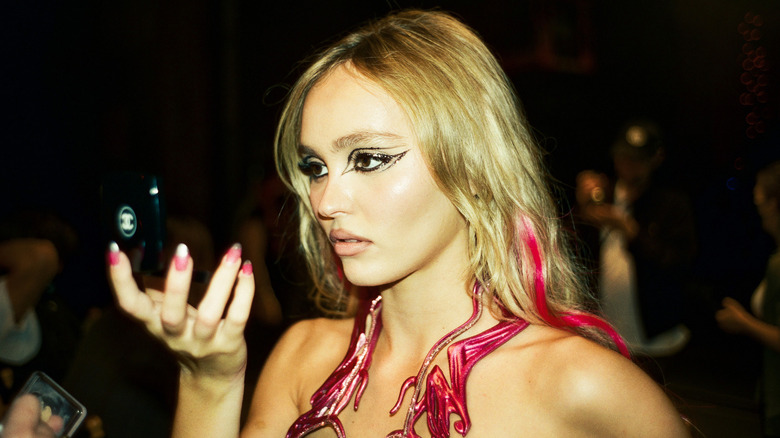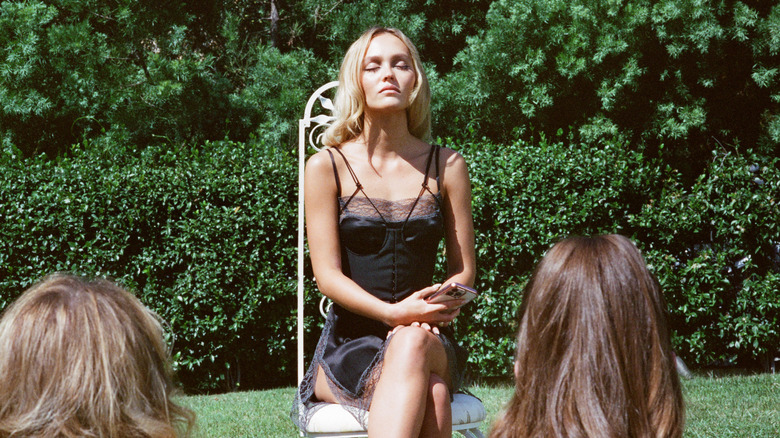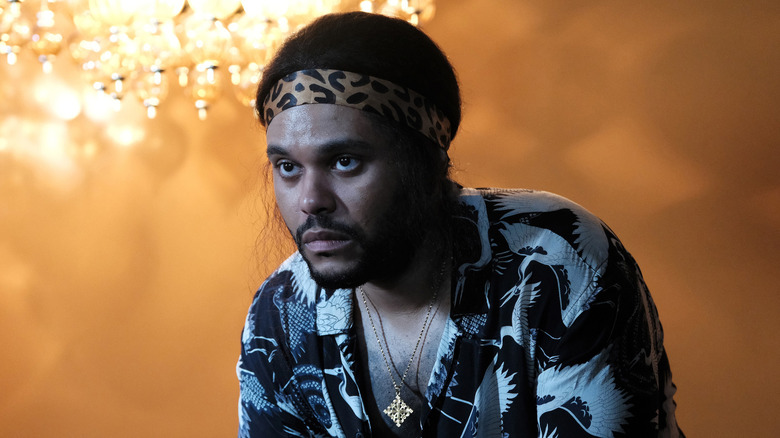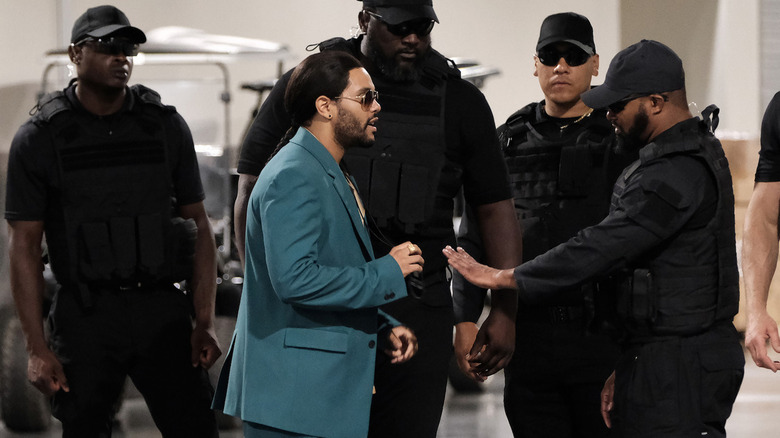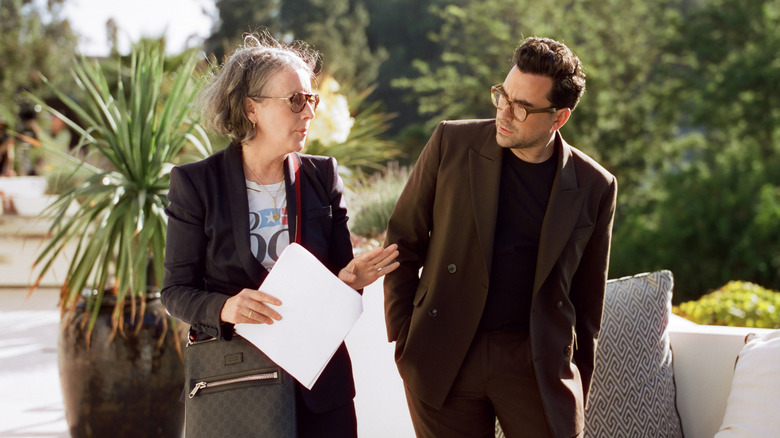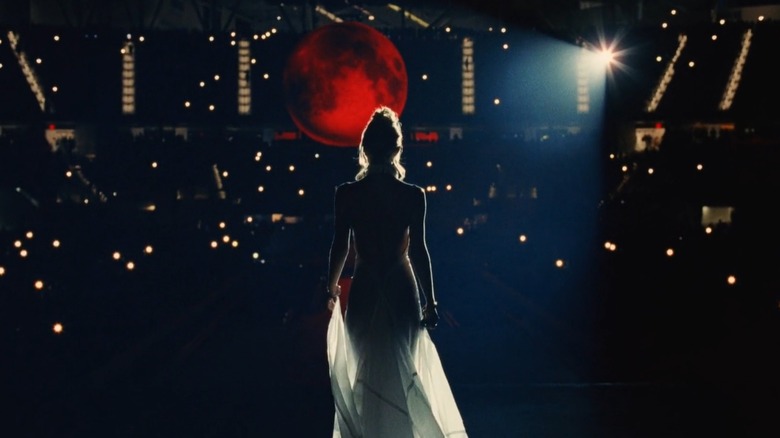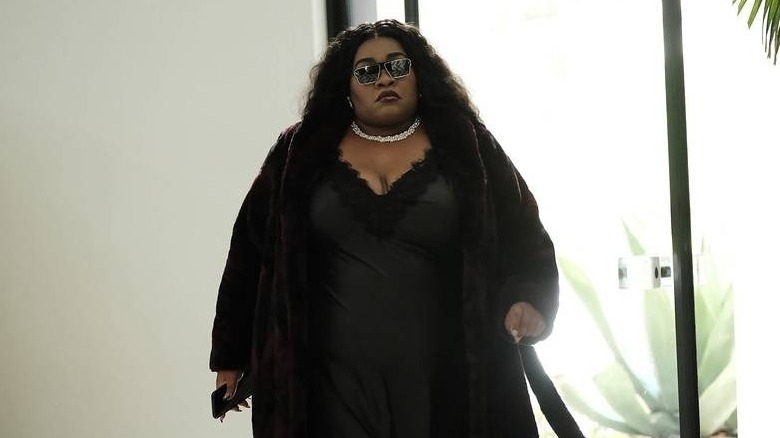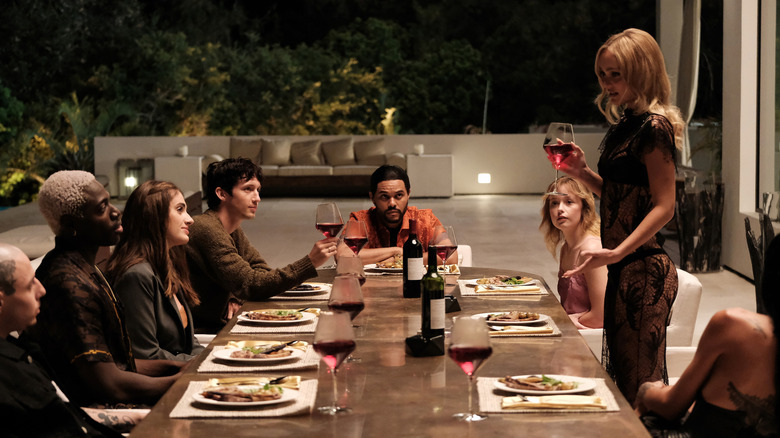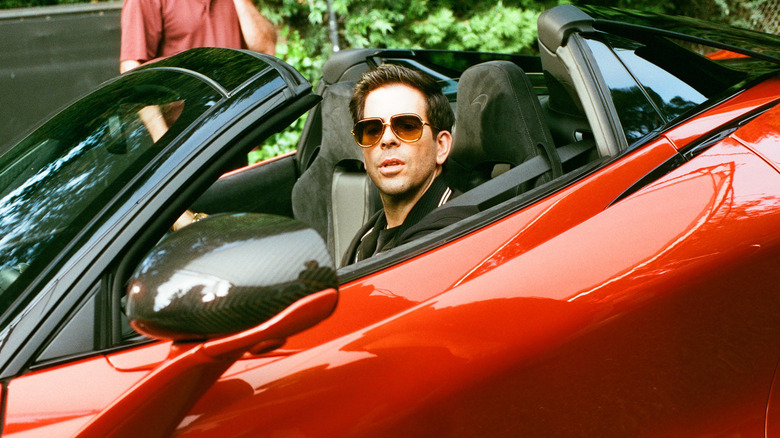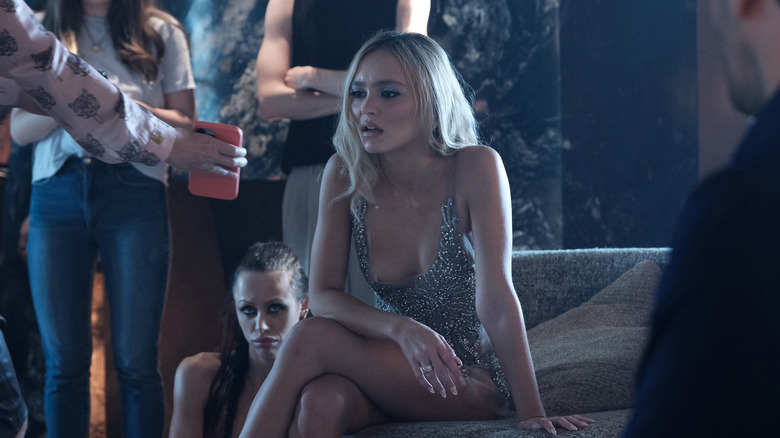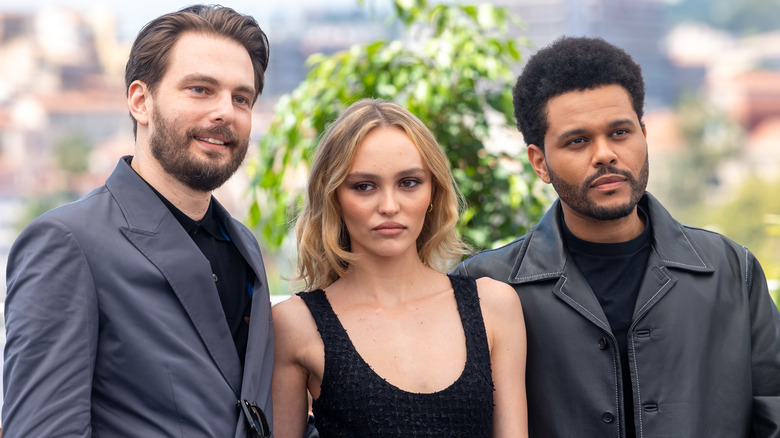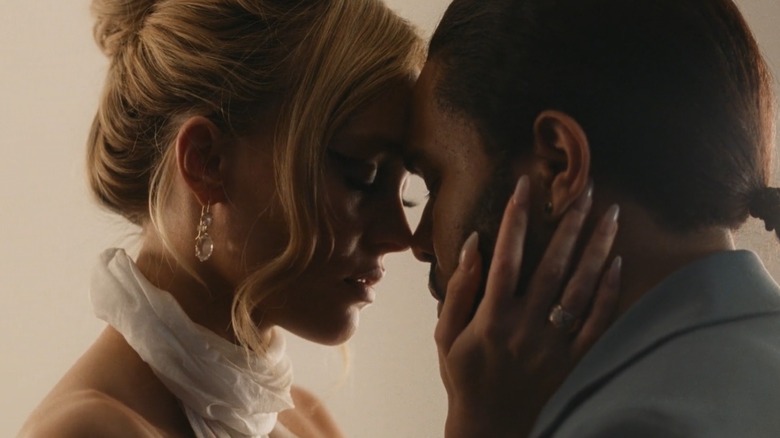The Idol Season 2 - Will It Ever Happen?
After a tumultuous season rife with controversy and rumors, HBO confirmed that "The Idol" would not be returning for Season 2. That may not have been too surprising to those who watched it or saw how divisive it became online. Despite claims from people involved during the series' five-episode run that HBO was happy with the show, a renewal failed to materialize.
When the finale was finally released, the reviews were still mainly negative, with critics generally expressing relief that they no longer had to watch the show. In theory, a collaboration between Sam Levinson and The Weeknd seemed like a foolproof plan. For years, The Weeknd released pop music with a dark edge that fans eagerly embraced. Levinson, too, had been achieving juggernaut ratings with his show "Euphoria," a darker take on the overdone teen drama genre. A collaboration at the height of their powers appeared to be a fantastic idea.
However, what ultimately occurred was two artists who seemingly managed to magnify each other's artistic weaknesses. The show faced harsh criticism from all sides, dwindling ratings, outright mockery on social media, and ultimately, cancellation. Despite these setbacks, though, there remains a hypnotic allure to each episode of the show. Some fans may still hold out hope for positive news regarding the series, including a potential revival. So, let's delve into what went wrong and if "The Idol" Season 2 might still be able to happen down the line.
HBO announced that it won't be moving forward with The Idol
After numerous rumors during the run of the show, HBO finally broke the silence regarding the future of "The Idol." "'The Idol' was one of HBO's most provocative original programs, and we're pleased by the strong audience response," the network said in a succinct statement released to Entertainment Weekly. "After much thought and consideration, HBO as well as the creators and producers have decided not to move forward with a second season. We're grateful to the creators, cast, and crew for their incredible work."
HBO had been considering a Season 2 of "The Idol," possibly with a short series run similar to a show like "The Leftovers." However, in the end, the stars didn't align. It's worth noting that "The Idol" shouldn't be entirely written off because it has mesmerizing elements, such as Levinson's continually improving directing and some impressive music.
Television benefits from taking risks, and "The Idol" was undeniably one of the riskiest shows produced at its budget level, especially for an original IP. Hopefully, everyone involved learns from this experience and returns to fans next time with a more focused project.
Why isn't The Idol Season 2 happening?
"The Idol" presents itself as a show about the dark underbelly of the contemporary music industry, including a lot of workplace harassment. Jocelyn and Tedros embark on a deeply problematic relationship, and it's certainly unsettling to see how their handlers romanticize it. However, some felt that the way the show was shot and written actually endorsed this behavior, rather than satirizing it.
This feeling was magnified by reports of a chaotic production that included a complete change in the director and extremely demanding reshoots. According to a report by Rolling Stone, some of the crew felt that the show's handling of Jocelyn and Tedros' relationship became callous after Sam Levinson took over from the original director, Amy Seimetz. This changeover resulted in major reshoots and rewrites. The remaining cast and crew didn't exactly dispute that Levinson's new approach to the material was shallower, but they still credited him for maintaining a respectful and safe set.
The Rolling Stone report alleges that Seimetz was ousted because The Weeknd was unhappy with her vision — one that focused more directly on Jocelyn and the cult storyline. All of this contributed to a season lacking focus, clarity, and positive publicity. But there are other reasons that likely contributed to "The Idol" Season 2 getting canceled.
The Idol was poorly received by critics
When Rolling Stone reported on the tumultuous production of "The Idol," Abel Tesfaye responded by posting a scene from the show on Twitter of his character calling the publication irrelevant, with the caption, "did we upset you?" But of course, the show was criticized by many, many more people after it premiered at the Cannes Film Festival.
After the Rolling Stone report came out, Sam Levinson made some claims that "The Idol" would be one of the biggest shows of the summer because it was already so provocative and controversial. Unfortunately, the product that people may have been curious about was almost universally reviled. The New York Times called it "impressively" bad, The Times labeled it pretentious, and The Playlist delivered perhaps the harshest blow, stating, "'The Idol' lacks the requisite self-awareness to be much of anything." This resulted in a critical 19% rating on Rotten Tomatoes.
The critical reception conveyed something far worse than what Levinson had assumed would be the biggest problem. It wasn't the behind-the-scenes drama or the sex scenes but rather the overarching theme, or lack thereof, that sunk the ship. By the end of "The Idol," fans concluded that this allegedly biting satire of fame and the music industry simply lacked teeth.
The Idol had low ratings
While Sam Levinson is no stranger to controversy, there's no doubt that he has a steady fanbase that engages with his work. "Malcolm & Marie" shot to the top of the Netflix charts, and "Euphoria" is still one of the few shows in this era that can consistently draw an audience in the millions every week. Levinson's style may not be regal or refined, but he's a true auteur, and there's always an audience eager to dissect his work. Therefore, HBO might expect any new work of his to at least be a ratings juggernaut, regardless of the critical reception.
However, that was not the case with "The Idol." By the time the penultimate episode rolled around, the show was only attracting 133,000 viewers per episode, according to Vanity Fair. That's noteworthy considering that other Sunday night prestige HBO shows typically surpass the 200,000 viewer mark, including "Euphoria," which has routinely attracted as many as half a million viewers for a single episode. HBO was undoubtedly paying close attention to what the numbers were telling them.
While numbers aren't always the sole factor that networks like HBO consider when renewing a series, when both the reviews and the ratings are poor, it becomes a clear business decision to cancel.
The Idol was expensive to make
Historically, HBO has taken its reputation as the home of prestige TV seriously. This often results in some of the most expensive TV in the history of the medium. For instance, when fans heard that "House of the Dragon" Season 1 had a $20 million budget per episode, they might not have been surprised given the extensive special effects and elaborate stylings of that show. However, eyebrows would understandably be raised upon discovering that a high school drama like "Euphoria" had a budget of $165M for Season 1, surpassing production budgets for many summer blockbusters.
In that same vein, "The Idol" also received the prestige treatment, with a budget that swelled to $75M according to some reports. The show's troubled production likely contributed to the inflated budget, but the money also raised the stakes for success, which the show ultimately didn't achieve. One could argue that the claustrophobic depiction of Jocelyn's life doesn't quite match the larger-than-life figure she's seen as by everyone else in the show. A series that demands such a substantial budget is held to extremely high standards, and HBO would likely prefer to invest in something else that meets these standards.
What Da'Vine Joy Randolph had to say about The Idol Season 2
Before the official cancelation came through, Da'Vine Joy Randolph, who plays Destiny on "The Idol," spoke optimistically about the potential for a Season 2. Sam Levinson was impressed by Randolph's talent in one of 2020's best shows, "High Fidelity," and she didn't disappoint in her role. Levinson's undeniable talent has always been casting. He has transformed unknown actors into stars and facilitated perhaps the smoothest transition from child star to adult actor with Zendaya.
Therefore, it's no surprise that Levinson's most vocal supporters have often been his actors. Randolph is no different. She defended the finale to The Hollywood Reporter, saying that she viewed it as empowering for women. In a separate interview with Variety, which was conducted before the cancellation announcement, Randolph also added that a second season had always been the plan.
"I think that everyone's intention is to have a second season. This was never intended to be a limited series," Randolph said. "Nothing is official, but HBO is quite happy." That interview was published at the end of June 2023, and two months later, "The Idol" was officially canned. However, Randolph's words about the feelings of the studio leave the door potentially open for renewed interest later on.
What could be explored in the The Idol Season 2
Throughout the chaotic run of "The Idol," it's evident that all eyes were on the Jocelyn-Tedros romance, which is an understandable decision given the outright abusive nature of their relationship. This portrayal should indeed be handled with the utmost care. However, the show's focus on the central romance unfortunately leaves many of the supporting characters underdeveloped and underutilized.
Every time these actors get a moment, they shine, as seen in the scene where Destiny calls Chaim and the two co-managers to assess Jocelyn's state of mind. Da'Vine Joy Randolph is spectacular in that scene. In her interview with Variety, Randolph entertained the possibility of a second season where her character and Jocelyn actually go through with their idea of killing Tedros. That would certainly be a more interesting watch than Season 1.
There are a few glimpses of the supporting characters' potential scattered throughout the five-episode run of the show, but these characters are never given much else. So, if by some miracle "The Idol" ever happens, a good place to start would be by delving into the side characters. The dynamic between Jocelyn and her childhood friend and creative director Xander (Troye Sivan) holds great promise because he's the only one who truly is on to her.
Who could star in The Idol Season 2?
There's a scene in "The Idol" where legendary music producer Mike Dean comes to Jocelyn's house at the request of Tedros. The scene has its comedic moments, and for fans who follow the intricacies of the music industry, Dean's cameo serves its purpose by grounding the show in reality. However, the cameo loses its impact as Dean ends up lingering in and around every scene long after his initial purpose in the show has been fulfilled. For a series that clearly aimed to be a darker version of "Entourage," they certainly missed the mark when it came to expertly handling cameos.
As it turns out, Levinson only cast him because Dean happened to be on the set producing the music for the show. In an attempt to experiment with a more improvisational approach, Levinson tended to spend precious screen time on characters who serve no other purpose than establishing the show's world. For a potential Season 2 of "The Idol," Levinson should instead turn the camera towards actors like Eli Roth, Dan Levy, and Jane Adams.
If Jocelyn truly runs a cult that involves everyone around her, including her tour manager, publicist, and label executive, as Xander claims, then it would best serve the show to not only bring them back but also provide them with more substantial material to work with. If Jocelyn is indeed the conniving manipulator "The Idol" suggests she is, fans need to witness that in action.
HBO initially denied that The Idol had been canceled
The publicity for "The Idol" turned into a nightmare for HBO. Social media reactions to certain elements were brutal. To make matters worse, just before the third episode aired, Page Six released a report claiming that the series was originally intended to be only five episodes long and was meant to have just one season. This story quickly gained traction, and many assumed that HBO had already made up its mind about the show's fate. This forced HBO to issue a statement on Twitter clarifying that the studio had not yet decided on the show's future.
Abel Tesfaye faced the brunt of the negative criticism, with many fans either complaining about how detestable his character is or criticizing his acting. Adding to the trouble, Page Six's report also alleged that some members of the cast and crew found Tesfaye's behavior on set to be egotistical. To salvage the show's increasingly tarnished reputation, Tesfaye assured fans that his character was intentionally portrayed as deplorable and pathetic.
Arguably one of the few things the show does well is highlighting that Tedros is ridiculed by everyone for his rat tail and his exaggerated sense of power. However, when only two episodes in, some members of the cast are already being compelled to explain their roles in GQ, and HBO is issuing statements about the possibility of cancellation, it's clear that the show's initial publicity rollout was mishandled from the start.
Sam Levinson and The Weeknd completely reworked The Idol
Multiple reports confirm significant changes leading up to the final version of "The Idol" that viewers eventually saw. The reasons behind these changes are still debated. Some rumors suggest that The Weeknd's egotistical presence on set shifted the series away from the original feminine perspective. Others claim the original crew didn't focus on Jocelyn and Tedros' relationship as closely as The Weeknd and Sam Levinson wanted.
What truly happened with the end product, however, was a show that attempted to incorporate both of these elements in a short five-episode run. One of the main weaknesses this exposed was The Weeknd's performance as the pathetic has-been cult leader. Tesfaye clearly struggled to shed his real-life persona, ultimately leading some fans to confuse the intended satire with endorsement.
In a promotional interview in W Magazine, Tesfaye discussed immersing himself in the Tedros role, even experiencing an identity crisis. He sought to shed his popstar persona in "The Idol" but still drew inspiration from his experiences as The Weeknd, resulting in a muddled message in the show's conclusion. All this production turmoil and the mixed results likely didn't sit well with HBO, especially as some fans now prioritize seeing Amy Seimetz's original cut over anticipating a Season 2.
The Weeknd referred to the show as a five-hour film
In "The Idol," there's a clear story arc with a beginning, middle, and a somewhat conclusive end. Jocelyn experiences a crisis of confidence while dealing with the pressure of being productive after her abusive mother's death. In her quest for self-discovery, she seemingly finds herself immersed in another abusive relationship, but ultimately, she overcomes it and takes control of her life. Tesfaye described this arc in an interview with GQ as a five-hour film.
Regardless of whether the crew had planned a Season 2 or not, they definitely ensured that the first season could stand on its own from a narrative standpoint. That being said, the ending raises more questions than it answers when Jocelyn announces Tedros as her new boyfriend. But part of the fun of shows like "Breaking Bad" is how frequently they write themselves into impossible corners.
"The Idol's" bait-and-switch of presenting Tedros as a Charles Manson-like figure, only to reveal that his influence doesn't remotely compare to that of a contemporary pop star, is interesting. Shows like "Swarm" have previously explored the lengths to which fans will go to "protect" the musicians they idolize. If "The Idol" Season 2 ever does happen, it could continue to explore these ideas. However, the odds of that happening at this point seem extremely low.
